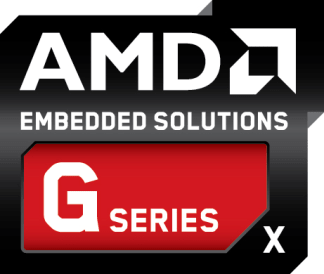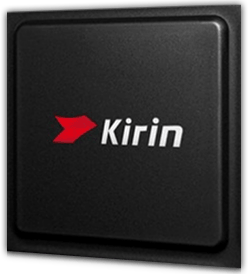HiSilicon Kirin 655 vs AMD G-T30L
Last updated:
CPU comparison with benchmarks
|
|

|
|
| HiSilicon Kirin 655 | AMD G-T30L | |
CPU comparisonIn this CPU comparison, we compare the HiSilicon Kirin 655 and the AMD G-T30L and use benchmarks to check which processor is faster.
We compare the HiSilicon Kirin 655 8 core processor released in Q2/2016 with the AMD G-T30L which has 1 CPU cores and was introduced in Q1/2011. |
||
| HiSilicon Kirin (29) | Family | AMD G (38) |
| HiSilicon Kirin 650 (4) | CPU group | AMD G (13) |
| 4 | Generation | 1 |
| Cortex-A53 / Cortex-A53 | Architecture | Ontario (Bobcat) |
| Mobile | Segment | Mobile |
| -- | Predecessor | -- |
| -- | Successor | -- |
|
|
||
CPU Cores and Base FrequencyThe HiSilicon Kirin 655 is a 8 core processor with a clock frequency of 2.12 GHz. The processor can compute 8 threads at the same time. The AMD G-T30L clocks with 1.40 GHz, has 1 CPU cores and can calculate 1 threads in parallel. |
||
| HiSilicon Kirin 655 | Characteristic | AMD G-T30L |
| 8 | Cores | 1 |
| 8 | Threads | 1 |
| hybrid (big.LITTLE) | Core architecture | normal |
| No | Hyperthreading | No |
| No | Overclocking ? | No |
| 2.12 GHz 4x Cortex-A53 |
A-Core | 1.40 GHz |
| 1.70 GHz 4x Cortex-A53 |
B-Core | -- |
Internal GraphicsGraphics (iGPU) integrated into the processor not only enable image output without having to rely on a dedicated graphics solution, but can also efficiently accelerate video playback. |
||
| ARM Mali-T830 MP2 | GPU | no iGPU |
| 0.90 GHz | GPU frequency | -- |
| -- | GPU (Turbo) | -- |
| Midgard 4 | GPU Generation | -- |
| 28nm | Technology | |
| 2 | Max. displays | |
| 2 | Compute units | -- |
| 32 | Shader | -- |
| No | Hardware Raytracing | No |
| No | Frame Generation | No |
| -- | Max. GPU Memory | -- |
| 11 | DirectX Version | -- |
Hardware codec supportA photo or video codec that is accelerated in hardware can greatly accelerate the working speed of a processor and extend the battery life of notebooks or smartphones when playing videos. |
||
| ARM Mali-T830 MP2 | GPU | no iGPU |
| Decode / Encode | Codec h265 / HEVC (8 bit) | No |
| Decode | Codec h265 / HEVC (10 bit) | No |
| Decode / Encode | Codec h264 | No |
| No | Codec VP9 | No |
| Decode / Encode | Codec VP8 | No |
| No | Codec AV1 | No |
| No | Codec AVC | No |
| No | Codec VC-1 | No |
| Decode / Encode | Codec JPEG | No |
Memory & PCIeUp to GB of memory in a maximum of 2 memory channels is supported by the HiSilicon Kirin 655, while the AMD G-T30L supports a maximum of GB of memory with a maximum memory bandwidth of 8.5 GB/s enabled. |
||
| HiSilicon Kirin 655 | Characteristic | AMD G-T30L |
| LPDDR3-933 | Memory | DDR3-1066 |
| Max. Memory | ||
| 2 (Dual Channel) | Memory channels | 1 (Single Channel) |
| -- | Max. Bandwidth | 8.5 GB/s |
| No | ECC | No |
| -- | L2 Cache | -- |
| -- | L3 Cache | 1.00 MB |
| -- | PCIe version | -- |
| -- | PCIe lanes | -- |
| -- | PCIe Bandwidth | -- |
Thermal ManagementThe HiSilicon Kirin 655 has a TDP of --. The TDP of the AMD G-T30L is 18 W. System integrators use the TDP of the processor as a guide when dimensioning the cooling solution. |
||
| HiSilicon Kirin 655 | Characteristic | AMD G-T30L |
| -- | TDP (PL1 / PBP) | 18 W |
| -- | TDP (PL2) | -- |
| -- | TDP up | -- |
| -- | TDP down | -- |
| -- | Tjunction max. | -- |
Technical detailsThe HiSilicon Kirin 655 has 0.00 MB cache and is manufactured in 16 nm. The cache of AMD G-T30L is at 1.00 MB. The processor is manufactured in 40 nm. |
||
| HiSilicon Kirin 655 | Characteristic | AMD G-T30L |
| 16 nm | Technology | 40 nm |
| Chiplet | Chip design | Unknown |
| Armv8-A (64 bit) | Instruction set (ISA) | x86-64 (64 bit) |
| -- | ISA extensions | SSE3, SSE4a |
| -- | Socket | -- |
| None | Virtualization | AMD-V |
| No | AES-NI | No |
| Android | Operating systems | |
| Q2/2016 | Release date | Q1/2011 |
| -- | Release price | -- |
| show more data | show more data | |
Rate these processors
Geekbench 5, 64bit (Single-Core)
Geekbench 5 is a cross plattform benchmark that heavily uses the systems memory. A fast memory will push the result a lot. The single-core test only uses one CPU core, the amount of cores or hyperthreading ability doesn't count.
|
|
HiSilicon Kirin 655
8C 8T @ 2.12 GHz |
||
|
|
AMD G-T30L
1C 1T @ 1.40 GHz |
||
Geekbench 5, 64bit (Multi-Core)
Geekbench 5 is a cross plattform benchmark that heavily uses the systems memory. A fast memory will push the result a lot. The multi-core test involves all CPU cores and taks a big advantage of hyperthreading.
|
|
HiSilicon Kirin 655
8C 8T @ 2.12 GHz |
||
|
|
AMD G-T30L
1C 1T @ 1.40 GHz |
||
iGPU - FP32 Performance (Single-precision GFLOPS)
The theoretical computing performance of the internal graphics unit of the processor with simple accuracy (32 bit) in GFLOPS. GFLOPS indicates how many billion floating point operations the iGPU can perform per second.
|
|
HiSilicon Kirin 655
ARM Mali-T830 MP2 @ 0.90 GHz |
||
|
|
AMD G-T30L
@ 0.00 GHz |
||
Devices using this processor |
|
| HiSilicon Kirin 655 | AMD G-T30L |
| Unknown | Unknown |
Popular comparisons containing this CPUs
back to index

